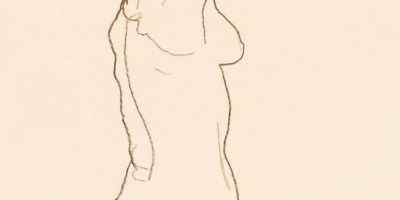Preparing for Sabbath
PREPARING FOR SABBATH by Nessa Rapoport. William Morrow, $10.95 (Bantam paperback, May 1982).
“We are building a palace of the heart, all of us standing here now at the point between where we have come from and what will unfold from us.”
This is the last line and the essence of Preparing for Sabbath, Rapoport’s first book. Rapoport, born in Toronto in 1953, has captured the spirit, thoughts, and experiences of many modern young Jewish women.
Judith Rafael is sensitively portrayed, with all her pride, searching and questions in full view. Reading Preparing for Sabbath is occasionally painful, for it hits so close to home. We are privy to Judith’s innermost thoughts and fears. We see her growing up in an observant, middle-class Jewish family, relating to her parents, sisters and friends. We feel the beauty of Shabbat at her grandmother’s house in the country with all her cousins. We empathize with her shyness when she meets Ori on the bus to summer camp where they are both going to be counselors, and later understand her desire and confusion about falling in love for the first time.
Judith’s quest for personal and religious fulfillment echoes fables from times past but is very much in tune with the minds of many young Jews today. She questions current standards of morality and explores the significance of an ancient religion. She realizes that she, like her contemporaries, is ever in the process of preparing, of beginning new experiences, of renewing and revising relationships with Jews and non-Jews, friends and lovers, and with Judaism, Israel and God.
Israel provides solace for her, with her people and with her religion, but she realizes that it is not enough. At the end of the book Judith returns to New York, prepared to incorporate religion into her daily routine, living with it rather living for it. “Choose life,” a friend tells her, “and Judith did. She too would go to work and be tired at the end of the day. She would ride on buses and subways, scrambling like everyone for a place. There would be friends and she would be uncertain. There would be grief. She would face it when it came, not always well. She would choose fullness, plenitude, and be imperfect for its sake.”
The title is a metaphor: it not only represents the anticipation of peace, happiness and beauty—goals in life to strive for—but the necessity of the striving itself. Judith Rafael embodies the spirit of many of us as she emerges at the end of the book alone, yet strong, and always preparing for change, for life.


